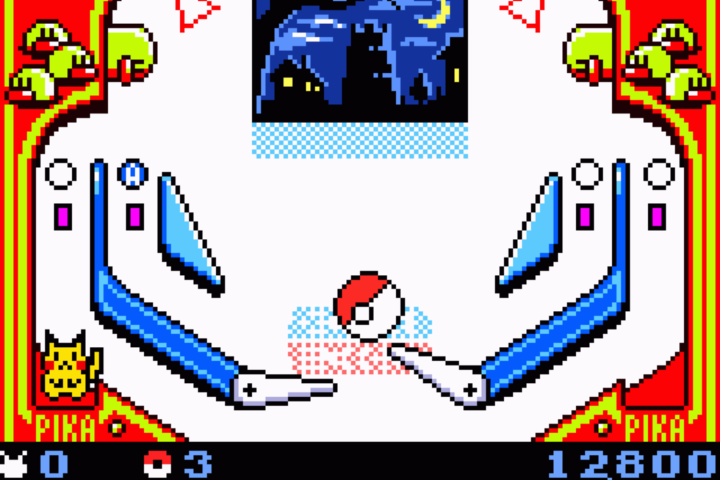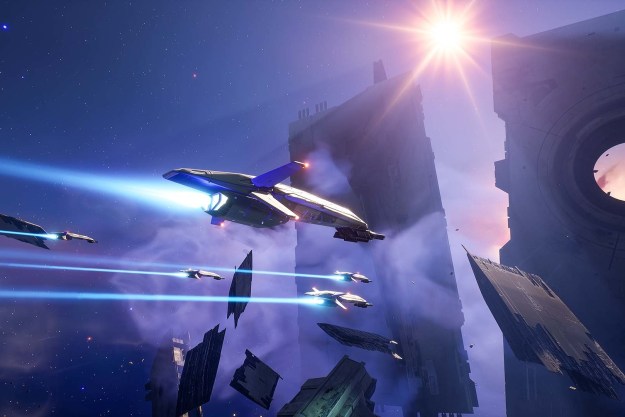For more than 25 years, developer Game Freak has found a way to reinvent the Pokémon franchise for each new generation of gamers. Both brand-new Pokémon trainers and seasoned Pokémon masters are captivated by these cute (and sometimes scary) little monsters. Maybe it’s the drive to catch ’em all that keeps players coming back. Or perhaps it’s how adorable these little pocket monsters can be. Whatever the reason, players continue to return to or start exploring the Pokémon franchise.
Between new main series titles that bring new regions and Pokémon into the mix — like Pokemon Legends: Arceus, Pokémon Scarlet and Violet, remakes, and spinoffs — there’s a massive library of Pokémon games to choose from. Everyone has their favorites, but some are arguably better than others (just like Nintendo’s long-running Metroid and Legend of Zelda series). We divided every Pokémon game into a couple of categories and ranked them accordingly.
Where do you think the next main series game will rank when it releases? And where will Pokémon Sleep rank among spin-offs?
All main series titles ranked
1. Pokémon Gold/Silver/Crystal (generation 2)

Starter Pokémon: Chikorita, Cyndaquil, Totodile
Pokémon Gold and Silver added 100 Pokémon to the original 151, including arguably the best trio of starters Pokémon has seen. Beyond adding to the Pokédex, generation two made great strides in multiple areas over the original. For starters, you now had to think about the time of day when trying to catch new Pokémon, as the day/night cycle smartly added a layer of depth to your time spent in the long grass.
Gold and Silver added the Kanto region to the map, connecting Johto with the landmass that started the phenomenon. With 16 gym leaders to best, Gold and Silver remain the deepest, lengthiest Pokémon games ever created.
Adding to the systems seen in Pokémon Yellow, generation two leaned into dual types, allowing you to make a more varied and strategically diverse team to bring into battle. The Johto region happens to be our favorite to explore as well and has the best legendary birds (Lugia and Ho-Oh). This installment also added the three legendary dog Pokémon — Raikou, Suicune, and Entei — which could be found roaming throughout Johto after an initial static encounter.
We’d be remiss not to mention HeartGold and SoulSilver, the enhanced DS remakes of Gold and Silver, but we’ll get to that in our remake-specific section below.
2. Pokémon Red/Blue/Yellow (gen 1)

Starter Pokémon (Blue/Red): Charmander, Squirtle, Bulbasaur
Starter Pokémon (Yellow): Pikachu
Partly due to nostalgia, partly due to how these games still feel great today, generation one’s trio of excellent Pokémon games take our second spot. To this day, generation one has the best collection of Pokémon. We’ll never forget the original 151 or Ash’s first adventure. From the opening moments in Pallet Town to choosing your first starter, racking up gym badges, fighting off Team Rocket, and defeating the Elite Four, Pokémon Red and Blue just feel right.
Sure, some of the deeper mechanics the series is known for now aren’t present in the original games, but there’s something about their streamlined identity that still brings a smile to our faces. Pokémon Yellow brought the series to full color, and having Pikachu by our side made us truly feel like we were Ash on a journey to catch ’em all. Generation one will always hold a special place in our hearts. It’s magical.
3. Pokémon Ruby/Sapphire/Emerald (gen 3)

Starter Pokémon: Treecko, Torchic, Mudkip
Generation three is when Pokémon games really started to lean into natures, EV systems, and IV systems, emphasizing not only the species but the specific member of that species in your party. The power of the best Game Boy Advance games made each model of the now 386 Pokémon more vibrant.
While we think the 135 new Pokémon as a group didn’t compare to the 100 added in gen two, Ruby and Sapphire had one of the neater regions. The Hoenn island region felt larger than previous regions and was generally a more interesting area to explore. A pair of stellar gen three remakes, Omega Ruby and Alpha Sapphire, are available on Nintendo 3DS.
4. Pokemon Legends: Arceus
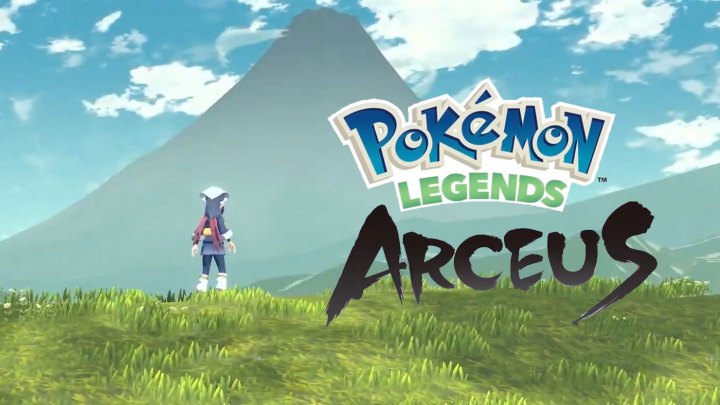
Starter Pokémon: Rowlet, Cyndaquil, Oshawott
There is some question as to whether Pokemon Legends: Arceus is technically a mainline title. Regardless of how you feel, there is no doubt that this is an ambitious and fresh take on the series. We praised Pokémon Legends: Arceus in our review for the way it, “…makes bold changes to the tried-and-true formula, successfully kicking off Pokémon’s long-needed reinvention.” Capturing and battling Pokémon meets a Breath of the Wild-like open world in a game that may shape the future of the series for years to come. It’s helped back a bit by the Nintendo Switch’s technical limitations, but the Pokédex system and outstanding battling make this a can’t-miss Pokémon entry.
5. Pokémon Scarlet and Violet (gen 9)
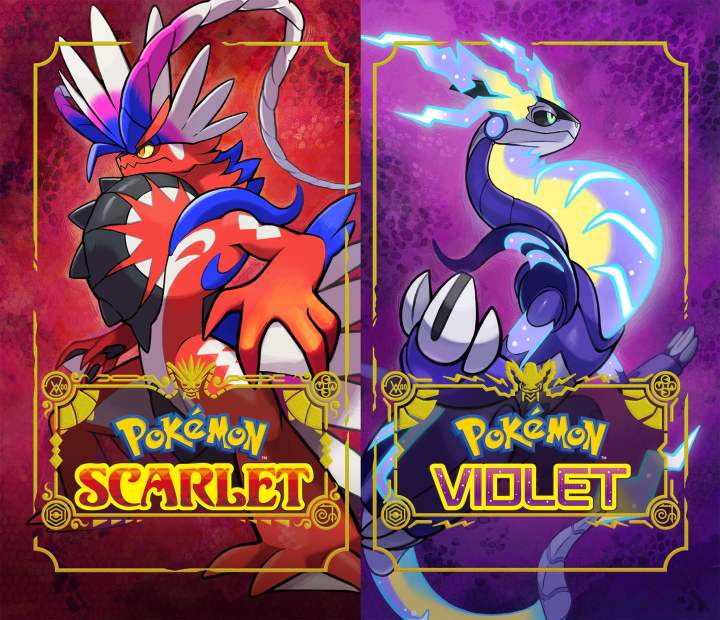
Starter Pokémon: Sprigatito, Fuecoco, Quaxly
If it weren’t for its slew of bugs and graphical glitches, Pokémon Scarlet and Violet could very well have made it into the top three here. From a pure gameplay perspective, it’s one of the most enjoyable Pokémon games released in the past decade. That’s thanks to its truly fresh open-world approach, which gives players way more freedom than they’re used to having in the series. In our review, we called it a “real step forward for a series that’s been locked in a holding pattern for well over a decade.”
Though of course, its issues are hard to ignore. Scarlet and Violet are some of the buggiest first-party Nintendo games ever released, which has raised some fair questions about the unsustainable pace developer Game Freak works. While those tech issues are certainly distracting, they don’t take away from a refreshing jaunt through the Paldea region, a place filled with perhaps the series’ finest collection of monsters.
6. Pokémon Sword and Shield (gen 8)

Starter Pokémon: Grookey, Scorbunny, Sobble
The latest Pokémon games are the first mainline titles released as a Nintendo Switch game, and Game Freak has finally realized our longtime dream of having a fully 3D Pokémon adventure on a home console. In the British-themed Galar region, you can venture into the new Wild area and capture monsters, or follow the set pathways from town to town that have been in the series since the very beginning. Either way, Pokémon are now just out and about instead of being hidden in randomized encounters, so frustration is greatly reduced.
With 400 Pokémon to catch and the addition of the Dynamax system to power up your monsters, Pokémon Sword and Shield can keep you busy for hours. However, the removal of longtime monsters from the game, including Psyduck and Squirtle, does mean you can’t catch ‘em all this time. Fortunately, with the arrival of the game’s Isle of Armor DLC and Crown Tundra DLC, you’ll have a chance to see new environments in the Galar region, catch new Pokémon, and battle new foes.
7. Pokémon Ultra Sun/Moon (gen 7)

Starter Pokémon: Rowlet, Litten, Popplio
Sun and Moon and the enhanced Ultra Sun and Ultra Moon switched up the standard Pokémon progression a bit. Set across the islands of Alola, Sun and Moon introduced players to Team Skull and the Aether Foundation, a group dedicated to protecting Pokémon. Rather than progressing through various towns’ gyms, you had to complete island trials, which typically included a small dungeon and a battle with a powerful Pokémon. Afterward, you’d be able to battle the island’s Kahuna.
The 80 new Pokémon were some of the most interesting to be added since the early games, and the Alolan versions of original Pokémon felt inspired. Z-Moves, Ultra Beasts, and an expanded take on Mega Evolutions added welcome mechanics into the fold. There was even a Pokémon Snap-style mini-game, making this one of the best 3DS games you can buy.
8. Pokémon X/Y (gen 6)
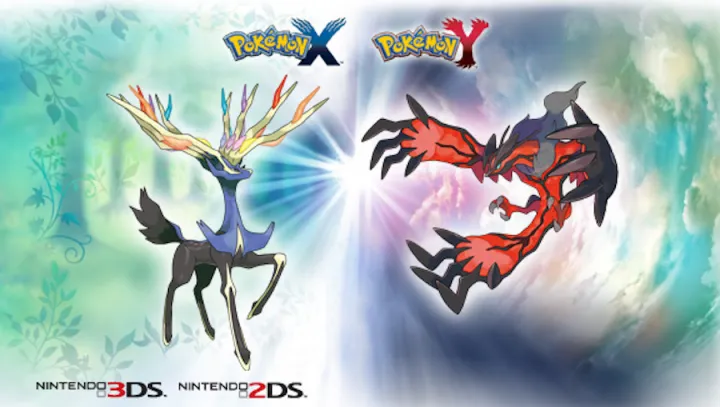
Starter Pokémon: Chespin, Fennekin, Froakie
Pokémon X and Y marked the series’ first truly 3D experience. The camera perspective switched from top-down to a closer, behind-the-body angle, which gave the world of Pokémon a sense of scope it hadn’t seen before. The France-inspired Kalos region had flair and style and featured one of the largest mega-cities we’d seen thus far.
Though X and Y only introduced 72 new Pokémon, it did mark the beginning of Mega Evolutions. The storyline somewhat disappoints, but the higher fidelity presentation provided by the Nintendo 3DS hardware made Pokémon models truly pop during battle sequences, allowing for crisper fighting animations.
9. Pokémon Diamond/Pearl/Platinum (gen 4)

Starter Pokémon: Turtwig, Chimchar, Piplup
Pokémon Diamond, Pearl, and Platinum served an important role in the evolution of Pokémon. They looked markedly better than gen three Pokémon, thanks to the Nintendo DS, but they mainly showed where the franchise would eventually go. Generation four brought a very important feature: Online trading and battling. This made filling out the Pokédex, which then neared 500 with the help of the new 107 pocket monsters, more of a global effort.
You didn’t have to know people with copies of the game to trade. Instead, you could just hop online and make a trade for what you needed. Online battling lets you really see who was the best trainer for the first time in series history. Generation four is great because of its technological innovations, but it’s one of the more forgettable Pokémon time periods overall.
10. Pokémon White/Black and White/Black 2 (gen 5)

Starter Pokémon: Snivy, Tepig, Oshawott
Generation five was an oddity. It was the first in the series to get a direct sequel, with Black 2 and White 2 releasing a year after the originals. The sequels did retread familiar territory, but told a new story and featured some new areas and new Pokémon. Generation five also holds the record for the most Pokémon, with 156 new Pokémon to catch.
Even more so than Diamond and Pearl, though, gen five, especially the sequels, felt like a stopgap for the series’ next evolution. While we regard generation five as the “worst,” we still think it’s pretty darn good. It didn’t introduce much new at all, but the true sequel concept was intriguing nonetheless.
All remakes ranked
When you have a winning formula, it’s hard to want to change it. The Pokémon games have found their niche audience and have managed to keep this audience entertained regardless of graphics. However, the Pokémon franchise has managed to push out a few remakes that are worth your time. Although these games are almost identical to the games listed above, they do have some improvements to each game that make them worth checking out and were usually compatible with the latest installment in the main series, allowing for some interesting cross-generation trading and battling.
1. Pokémon HeartGold and SoulSilver (gen 4)
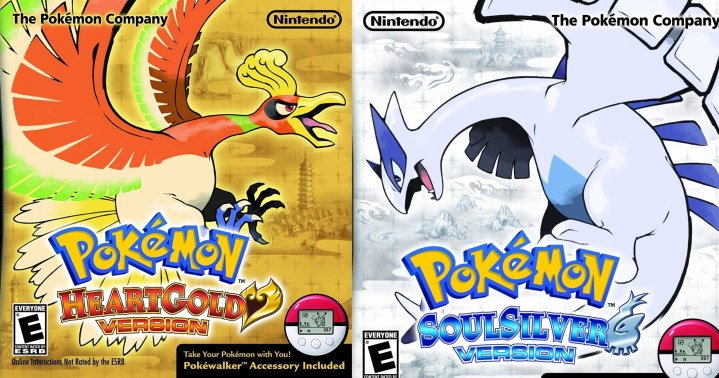
Starter: Chikorita, Cyndaquil, Totodile
If you haven’t guessed yet, Pokémon HeartGold and SoulSilver are enhanced versions of their predecessors, Pokémon Gold and Silver. This game was released to commemorate the 10th anniversary of Gold and Silver, which were originally released in 1999. The creators worked to ensure that the game felt like a new game while also ensuring that it respected the feelings of those who loved the originals.
The games hold a few new features that originally only Pokémon Crystal had. It’s also the first Pokémon game that allowed the player’s party to follow them into the outer world. It was similar to how Pikachu would follow you around in Pokémon Yellow. There were also a handful of minigames that were added. Players could use the Nintendo DS touchscreen to compete in the Pokéathlon. Additionally, the GB Sounds was a new item and would change the background music to the original 8-bit music from Pokémon Gold and Silver.
2. Pokémon FireRed and LeafGreen (gen 3 remake)
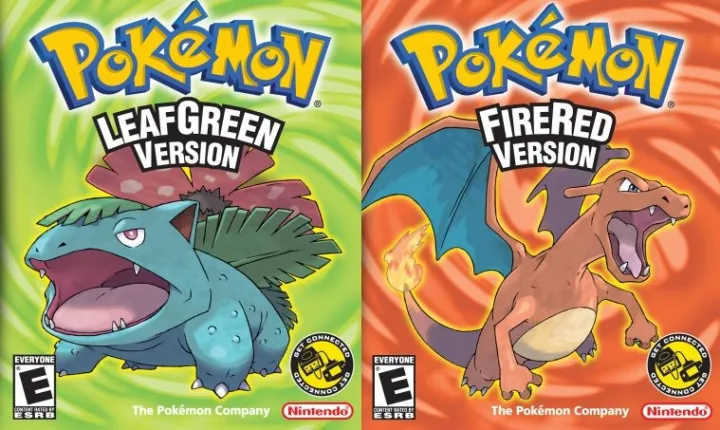
Starters: Charmander, Squirtle, Bulbasaur
The first remake for Game Freak, FireRed and LeafGreen are the 2004 enhanced remakes of the original Red and Blue. Although they were made based on Red and Blue, they’re actually part of the third generation of Pokémon games. The game takes us back to the Kanto region, giving us memories of some of the Pokémon we’ve seen before.
However, at the end of the game, we’re welcomed to the Sevii Islands, which is a completely new area that wasn’t available in either Red or Blue. This island stands out because it holds Pokémon that were normally exclusive to the Johto region and has a few post-game missions that can be fun. What’s more, once the missions on the Sevii Islands are completed, players were able to trade Pokémon with players who had Ruby or Sapphire, making it possible to have Hoenn-exclusive Pokémon as well.
3. Pokémon Omega Ruby and Alpha Sapphire (gen 6)

Starters: Treecko, Torchic, Mudkip
Those of us who preferred Pokémon Ruby and Sapphire were invited back to the game with Omega Ruby and Alpha Sapphire. The game is part of the sixth generation of Pokémon games and was played on the Nintendo 3DS. Although the game is a remake, Game Freak worked to ensure that it had some of the changes from later generations.
We saw Pokémon with split types from the fourth generation and had unlimited TM usage and triple battles from the fifth generation. They also added features from Pokémon X and Y, such as Super Training and Mega Evolution. One of the new mechanics that stood out was the ability to use Latios or Latias to fly around Hoenn. This is because when using these Pokémon to fly, we could run into “mirage spots,” which had Pokémon that weren’t otherwise available in the Hoenn region. This includes numerous legendary Pokémon from previous generations.
4. Pokémon Brilliant Diamond and Shining Pearl
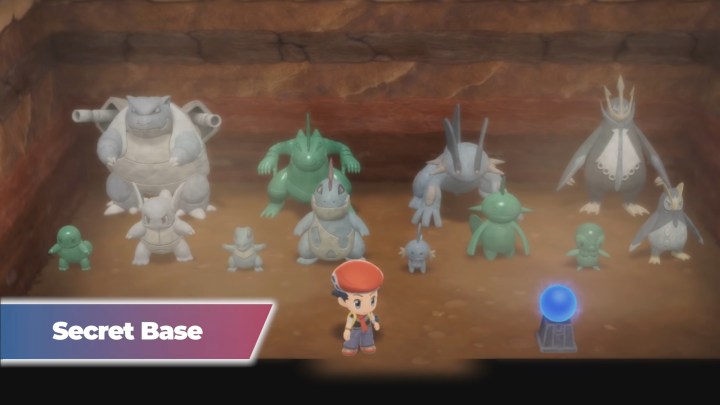
Starters: Turtwig, Chimchar, Piplup
The 2021 release of Pokémon Brilliant Diamond and Pokémon Shining Pearl finally brought gamers a pair of long-requested remakes. The two classic Nintendo 3DS titles came to the Nintendo Switch with updated gameplay, enhanced visuals, and expanded endgame.
We praised the game in our review for faithfully translating Pokémon Diamond and Pokémon Pearl in a way that felt authentic to the originals. That can be a bit of a double-edged sword, as the linear path and lack of challenging gameplay will be appealing for young gamers, but may turn off series veterans. The Underground has been expanded into the new Grand Underground. This end-game area now contains a sprawling dungeon, where you can battle and capture Pokémon of various types. It’s great for gathering XP or filling out your Pokédex.
5. Pokémon Ultra Sun and Ultra Moon (gen 7)
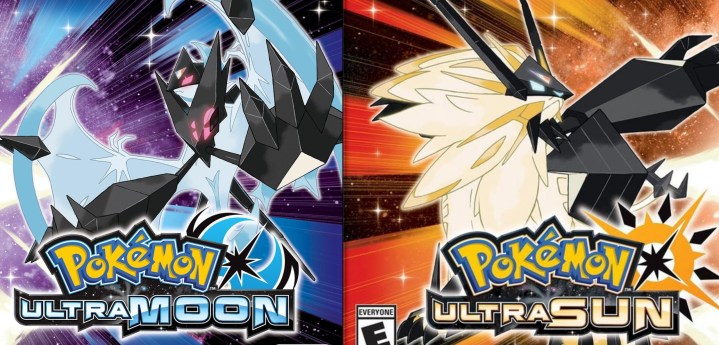
Starters: Rowlet, Litten, Popplio
As part of the seventh generation of Pokemon games, Pokemon Ultra Sun and Ultra Moon enhance the versions of the original Sun and Moon in a way that makes them enjoyable. Critics and players were a bit divided on how this game felt. On one hand, the additional features were amazing. On the other hand, it didn’t stray too far from the original story, which made it feel like the same game over again.
Nonetheless, we saw some great new features added to the game. Things like Ultra Beasts, new forms of legendary Pokémon Necrozma, and a new Lycanroc form. We could also travel around the Alola region to collect Totem Stickers, which would then give us a chance to get a Totem-sized variant of a Pokémon. We also had a few new activities: Mantine Surf let us surf across the region’s seas, the Alola Photo Club got us to take pictures with our Pokémon, and Ultra Warp Ride let us travel through Ultra Wormholes and encounter Ultra Beasts in their own world. Of course, there were also the new Z-Moves for a handful of Pokémon and the upgrade to the Rotom Pokedex, which added Roto-Loto.
All spin-off games ranked
Outside of the mainline games, there are dozens upon dozens of Pokémon experiences. Some of them diverge slightly from the core formula, and others are entirely different. Make no mistake about it, the Pokémon franchise has produced a lot of duds that felt like cash grabs. (Pokémon Mystery Dungeon series, anyone?) But some Pokémon spin-offs work quite well. Here are our favorites.
1. New Pokémon Snap

New Pokémon Snap is the latest release in the Pokémon franchise and one of the series’ best. Part amusement park ride, part puzzle game, New Pokémon Snap tasks you with collecting pictures of Pokémon as you are carted around on a self-driving car. You earn points and stars based on the quality of the pictures as you venture across several maps. Getting the perfect shot often comes down to careful timing and learning what lures or actions on your part will get the right reaction from the Pokémon. There are hidden pathways to find, and the wild Pokémon become increasingly comfortable with you on repeat visits, leading to even more opportunities to snap an interesting picture. Seeing these adorable creatures in their natural habitat is relaxing and charming, and New Pokémon Snap is the perfect game to relax with.
2. Pokémon Stadium

Pokémon Stadium brought our friends to 3D long before the mainline series when it launched on Nintendo 64. The game used the standard turn-based battling system, rendering all of your favorites from the original 151 in the glory they deserved.
Working our way through the stadium cups and playing multiplayer against friends was a blast. The best part about Stadium, though, was the Transfer Pak. The N64 controller attachment lets you insert your copy of Pokémon Red, Blue, or Yellow to use your personal collection in the game’s exciting 3v3 battles.
3. Pokémon Conquest
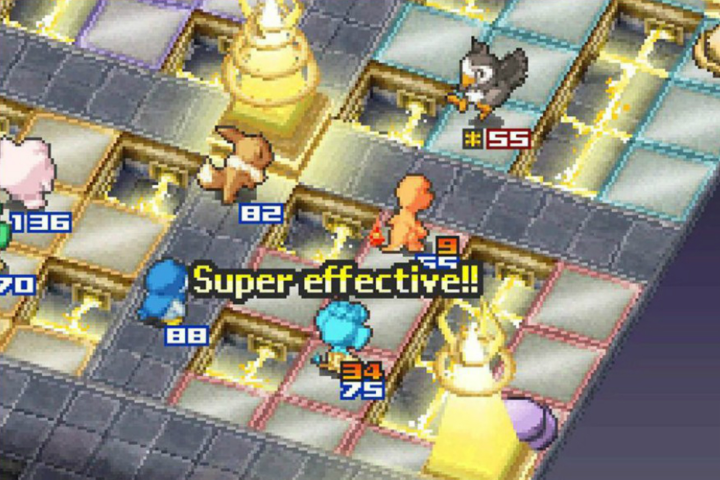
Pokémon Conquest for Nintendo DS spun the Pokémon formula into a wonderful tactics experience. Set in the new Ransei region, it told a wholly original story filled with warlords and waging factions. While the turn-based tactics gameplay wasn’t as deep or challenging as games such as Fire Emblem and Final Fantasy Tactics, it was a perfect introduction to the genre and contained all of Pokémon’s patented charm.
4. Pokémon TCG Online
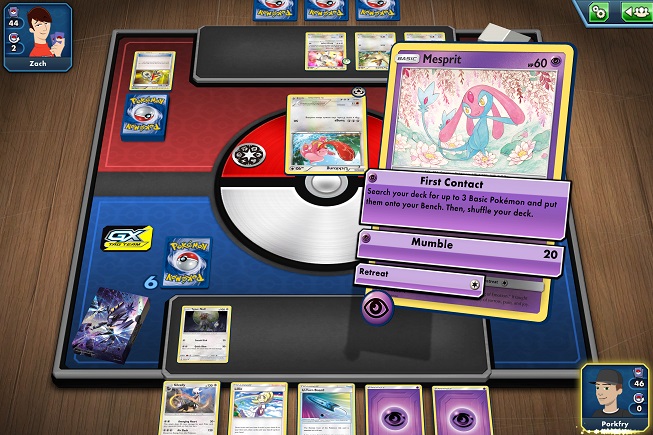
Pokémon began its life as a series of video games, but the trading card game has taken on a life of its own. Published in the West by none other than Wizards of the Coast — the same company behind what might be the most popular trading card game in the world, Magic: the Gathering — Pokémon’s physical spin-off is simple to understand but rife with depth. Pokémon TCG Online is a free, online version of the tabletop game, fit with the latest expansions and a sleek interface. Even better, each pack of physical cards comes with a redemption code, allowing you to double down digitally.
5. Pokémon Snap
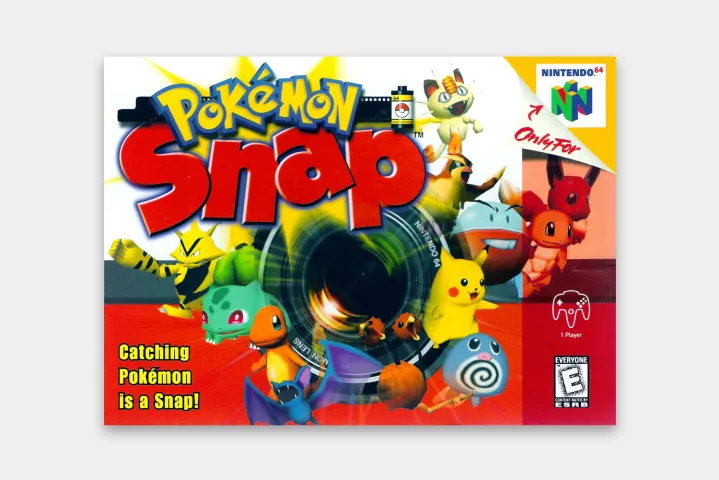
An on-rails shooter about taking candid shots of Pokémon in their natural habits for Professor Oak? Sign us up. The original Pokémon Snap as a Nintendo 64 game focused more on the beauty of these magical creatures rather than their deft combat skills. We loved every moment of it, especially when we captured an absolutely perfect photo of a fire-breathing Charizard.
6. Pokémon Go
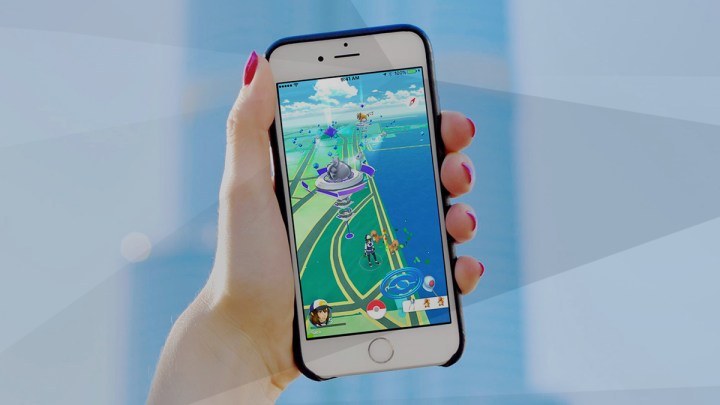
Pokémon Go is the most successful Pokémon game of all time in terms of player count. The mobile sensation lets you be a real-life Pokémon trainer anywhere in the world. Using AR technology, Pokémon pop up whether you’re walking down the sidewalk or hanging out in your own backyard.
7. Pokémon Unite

Pokémon meets League of Legends in Pokémon Unite, the first-ever Pokémon MOBA. Customizable trainers battle five versus five, using some of the most popular Pokémon from the series. It has classic attack moves, evolutions, and adorable outfits for Pokémon to wear. What’s not to love?
8. Pokémon: Let’s Go
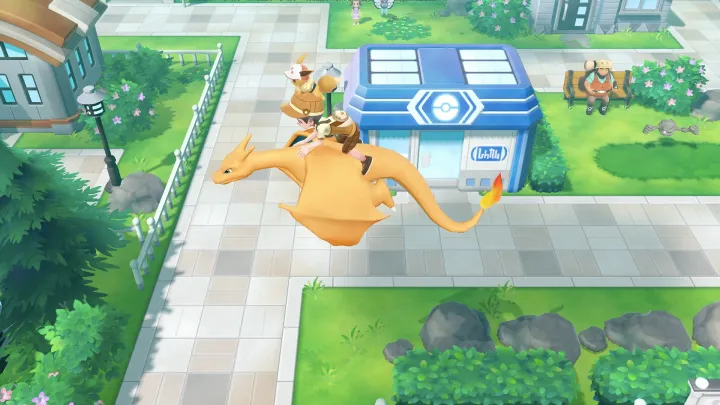
Pokémon: Let’s Go for Nintendo Switch is incredibly close to being considered a mainline Pokémon game. After all, it’s a largely faithful remake of Pokémon Yellow rendered in beautiful 3D visuals, complete with battling, the gym badge progression, and the Elite Four. Where Let’s Go differs is the act of catching Pokémon.
Using Pokémon Go as an influence, a simplistic catch mini-game commences when running into a wild Pokémon. Let’s Go also depicts wild Pokémon roaming the overworld, so you always know what you’re getting into beforehand. Pokémon: Let’s Go is a wonderful melding of two types of Pokémon games.
9. Pokémon Puzzle League

Pokémon Puzzle League is essentially just Tetris Attack with a different coat of paint, but it is still one of the more entertaining Pokémon games outside of the main series. The game is simple: the player’s board is on one side of the screen with the opponent’s on the other.
Both boards will fill up with tiles and players must rearrange the tiles to create lines of three or more in a row. Doing so will clear the tiles from your board and send blocks to your opponent’s board, which they’ll have to clear out. The game is straightforward but challenging and is particularly fun to play against another person. The presence of various characters from Pokémon also gives it a warm feeling of nostalgia.
10. Pokémon Pinball
Pokémon Pinball for the Game Boy Color is surprisingly addictive for a game with only two tables. Hitting certain objects on the table will cause Pokémon to appear, and players can then catch them by hitting them with the ball multiple times before the time limit runs out.
Though it is a basic game, there are some interesting aspects to it. It has a misshapen game cartridge that contains a battery-powered “rumble” feature to add some haptic feedback. This was a unique novelty for the Game Boy when this game was released.
11. Pokémon Café Mix
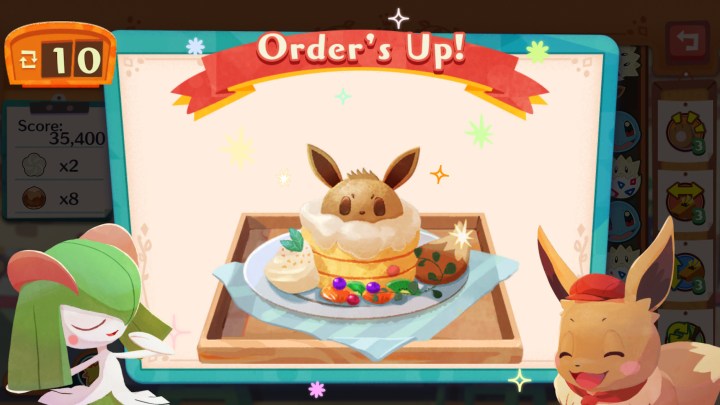
Pokémon Café Mix is a free-to-play game that requires you to complete puzzles. The game stars you and an Eevee, who are owners of a café where Pokémon come and order Pokémon-themed food and drinks. To fulfill each order, you have to complete a puzzle to prepare the corresponding item. You’ll need to clear Pokémon icons on-screen by linking them together in a ring. When you finish a level, you’re able to upgrade your café with customized floors and designs that draw in different Pokémon. After a while, these Pokémon will also become part of your staff.
This game is similar to a lot of mobile games on the market. First-time players who try it out will get the hang of it fairly quickly. It’s a fun and cure game for players on the go to try out. You can play the game on both the Nintendo Switch and mobile devices, but the game is only supported in the Switch’s hand-held mode. Pokemon Cafe Mix isn’t an innovative game that will garner special awards, but it’s a fun game for Pokémon fans to play.
12. Pokken Tournament DX

Pokken Tournament DX is a Tekken-inspired fighting game that puts you in direct control of your chosen Pokémon, battling your way to the top. This deluxe version is an expanded and upgraded port of the 2016 Wii U release, bringing with it expanded rosters and gameplay modes to the Nintendo Switch.
The action shifts between 3D and 2D, and successfully blends Pokémon powers with traditional melee combat. The result is a game that is welcoming to Pokémon fans but deep enough to satisfy fighting game aficionados. Pokken Tournament features a single-player campaign but really shines in its online competitive multiplayer mode.
13. Detective Pikachu

Detective Pikachu is the first of its kind within the Pokémon franchise. It’s an adventure game that takes you through a powerful narrative. You play as Tim Goodman, who stumbles upon a Pikachu that he can oddly understand. We come to find out that this particular Pikachu is actually the Pokémon of Tim’s father, Harry Goodman. We also come to learn that Harry has disappeared. Now it’s up to you and your new Pikachu to find Harry and unravel the secrets of the Pokémon Comprehensive Laboratory.
Editors' Recommendations
- Best gaming console deals: cheapest prices on PS5, Xbox S and X and Switch
- The best VR games
- Best gaming laptop deals: Alienware, Razer, Asus and more
- All upcoming PS5 games: 2024 and beyond
- All upcoming Switch games: 2024 and beyond
